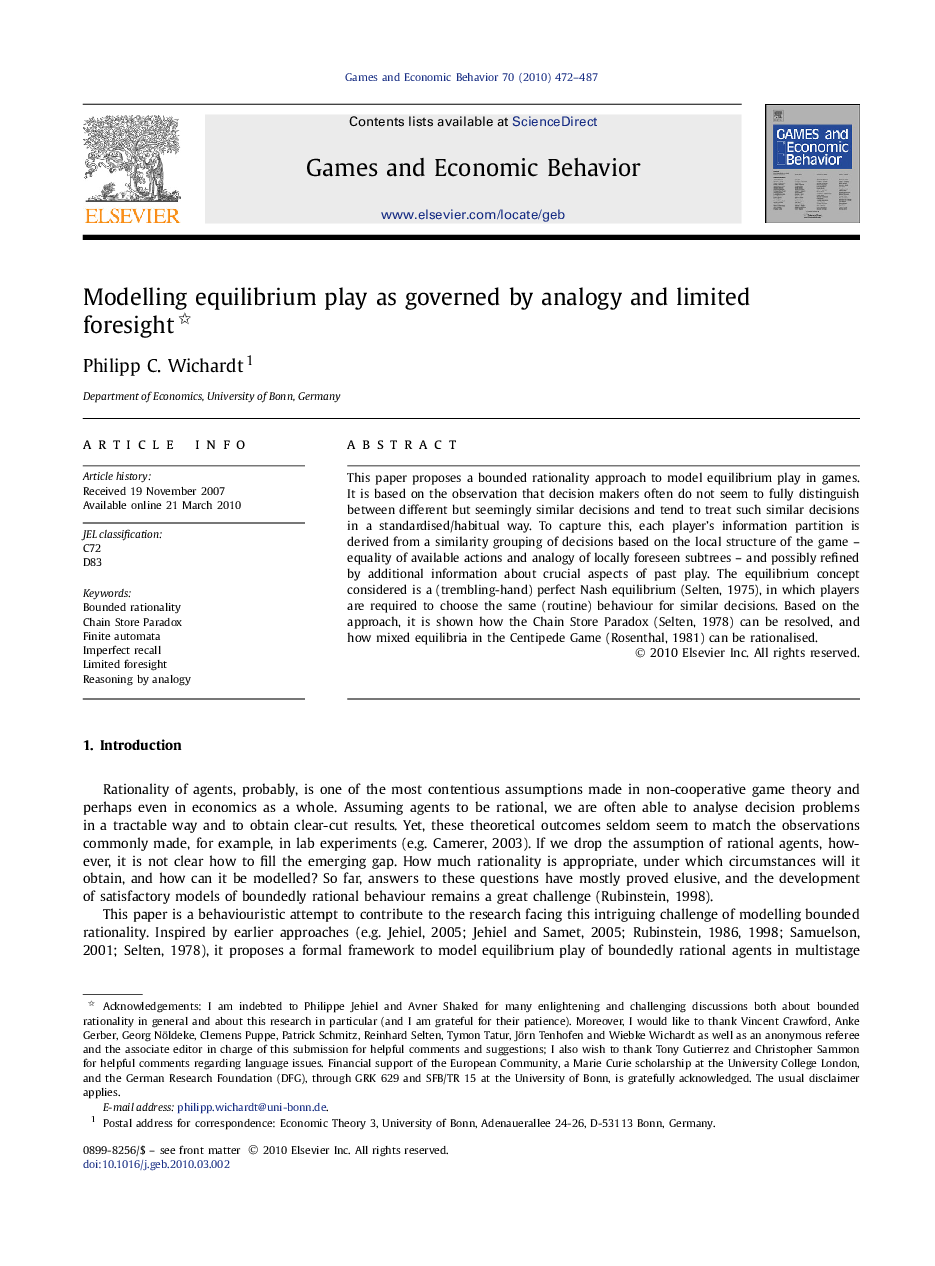| Article ID | Journal | Published Year | Pages | File Type |
|---|---|---|---|---|
| 5072333 | Games and Economic Behavior | 2010 | 16 Pages |
Abstract
This paper proposes a bounded rationality approach to model equilibrium play in games. It is based on the observation that decision makers often do not seem to fully distinguish between different but seemingly similar decisions and tend to treat such similar decisions in a standardised/habitual way. To capture this, each player's information partition is derived from a similarity grouping of decisions based on the local structure of the game - equality of available actions and analogy of locally foreseen subtrees - and possibly refined by additional information about crucial aspects of past play. The equilibrium concept considered is a (trembling-hand) perfect Nash equilibrium (Selten, 1975), in which players are required to choose the same (routine) behaviour for similar decisions. Based on the approach, it is shown how the Chain Store Paradox (Selten, 1978) can be resolved, and how mixed equilibria in the Centipede Game (Rosenthal, 1981) can be rationalised.
Related Topics
Social Sciences and Humanities
Economics, Econometrics and Finance
Economics and Econometrics
Authors
Philipp C. Wichardt,
